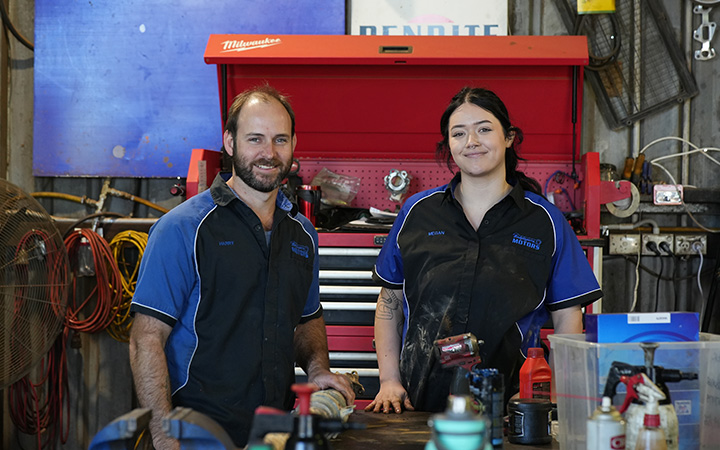This means that the success of auto workshops will become increasingly defined by their ability to master and apply all this technological knowledge successfully and efficiently.
In other words, it’s all about working smarter, not harder.
This is going to have a dramatic impact on the way successful workshops estimate and charge for their work. If you’re still only charging for the time you spend working on a vehicle – and not the knowledge, expertise and equipment required to diagnose and service it quickly and correctly – then chances are you’re doing yourself a financial disservice.
Our most recent State of the Nation survey told us that almost half of the workshops surveyed are only charging for diagnostics some of the time, and more than 10% never charge for them. This represents a huge, missed revenue opportunity.
After all, diagnostic equipment is expensive and charging for it helps cover the cost of the equipment, the all-important updates, and the training required to upskill and master the equipment and processes, not to mention the time taken to perform the actual diagnosis.
A practical example
Here’s an example to demonstrate this point – a late model vehicle comes in with a technical problem not experienced before in your workshop. This is not an unusual scenario for those in the auto aftermarket game.
A competent and professional workshop will have processes in place to effectively manage every job, and while many will have systems in place to track every hour spent on a job, there remains a great deal of confusion about how to charge to resolve a unique technical problem.
More confusion follows when jobs which may have taken a lot of time and diagnostic skills to resolve the first time around become easier and take less time as a result of the workshop’s accumulated experience and knowledge.
Therefore, should subsequent customers pay less for the expertise a workshop has accumulated by being charged only the labour time spent on the job? It seems counterintuitive to invest time and effort in becoming more knowledgeable and efficient, only for this to result in you bringing in less revenue.
The trick with timing belts
Here’s a more predictable job most workshops do regularly – timing belts. The first time, a late model car with twin cam and variable cam timing may take five or six hours, which should be charged out accordingly.
The next one is a little easier and with a newly purchased tool, the timing belt job is done in 4.5 hours. By the time the third similar vehicle arrives for the same repair, the workshop is able to complete the job in just 3.5 hours. What is the charge?
Every job is worth a certain value, in which the labour time should play one part in determining that value. If workshop owners committed to charging a fair and reasonable amount, they should consider basing their charge out rates on what a job is worth, not how long it takes. This same philosophy should be applied to all types of jobs – including more technical jobs involving diagnostics.
Adopting a knowledge based mindset
Workshops able to employ and train good staff and invest in the latest equipment, tools and information sources will be best equipped to cope with the rapidly changing future vehicle landscape.
The knowledge accumulated by the workshop becomes part of the workshop’s assets. Future similar repair jobs should therefore be charged based on the established value of the job, not the fact that the workshop has applied its knowledge and special tools to do the job in half the time.
In this year’s State of the Nation report, Capricorn CEO of Automotive, Bradley Gannon, said “Members are running a knowledge and-skills-based business and they need to think of themselves as a knowledge worker. They need to be proud of that and unashamedly charge well for their time, in the same way an accountant, lawyer or engineer does.”
Is it time that you started to adopt this mindset?
Nothing in this article is intended to constitute personal business or financial advice. Members should consider their own circumstances and seek their own personal advice as necessary.


